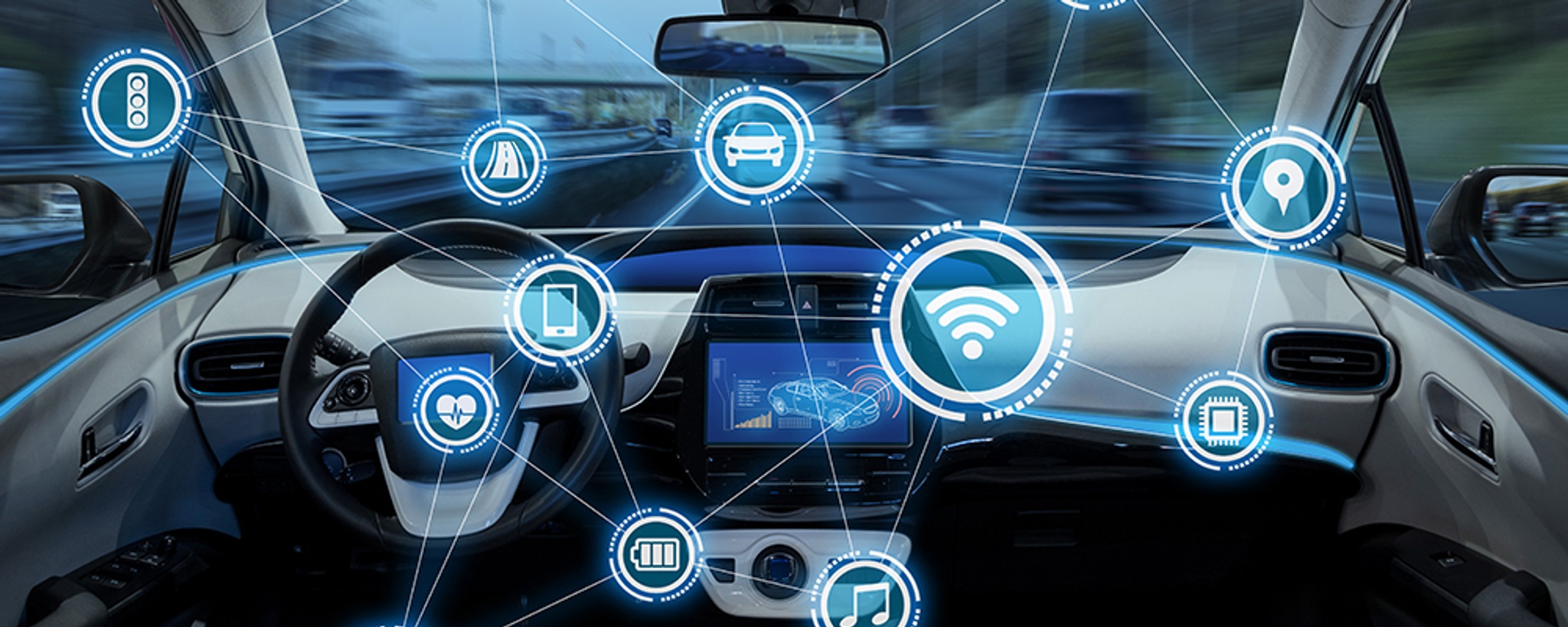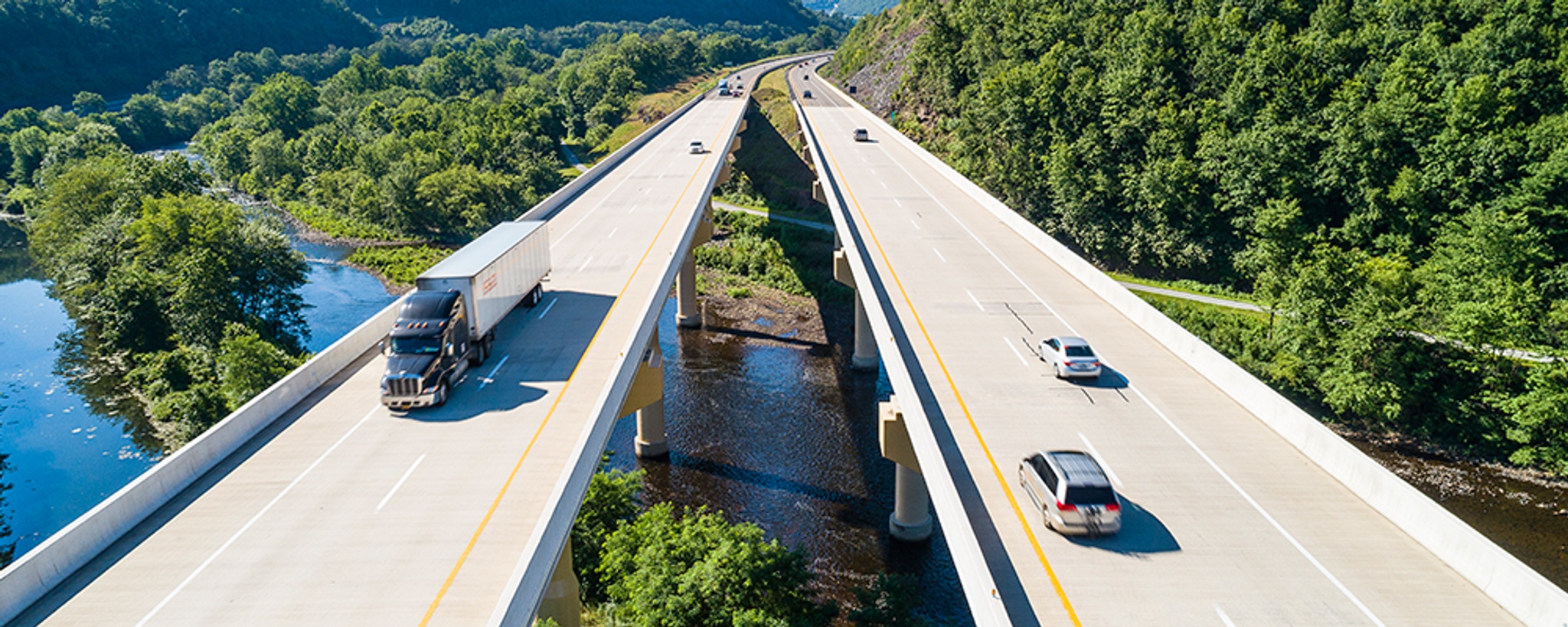Transportation
Navigate forward to interact with the calendar and select a date. Press the question mark key to get the keyboard shortcuts for changing dates.
Navigate backward to interact with the calendar and select a date. Press the question mark key to get the keyboard shortcuts for changing dates.
As every sector of the global economy and nearly every facet of modern society undergo digital transformation, ITIF advocates for policies that spur not just the development of IT innovations, but more importantly their adoption and use throughout the economy. ITIF's work in this area examines how IT can transform not just our vehicles but our entire transportation infrastructure.

Nonresident Senior Fellow
ITIF Center for Clean Energy Innovation and Boston University Institute for Global Sustainability
Read BioFeatured
A Policymaker’s Guide to Connected Cars

While there is much excitement about autonomous vehicles, connected vehicles hold much more promise over the next decade or so. However, absent proactive public policies, especially to enable infrastructure to “talk” to vehicles, the development and adoption of connected vehicles will be suboptimal.
More Publications and Events
June 17, 2025|Events
Paving the Way: A Fair Funding Future for US Roads
Watch now for a virtual panel discussion with top experts as they explored the technological feasibility and legislative pathway for how a commercial trucking RUC can serve as the foundation for a sustainable, long-term solution to America’s transportation funding crisis.
May 28, 2025|Testimonies & Filings
Comments to the Federal Railroad Administration Regarding Modernizing Inspection Requirements
ITIF respectfully urges the FRA to approve the requested relief and to initiate broader regulatory modernization that embraces autonomous safety technologies.
May 12, 2025|Testimonies & Filings
Comments to OMB Regarding Deregulation
As part of its deregulation efforts, the administration should clarify Bayh-Dole march-in rights; rescind NIH Access Planning Policy; rescind FRA two-person train crew requirements; clarify requirements for manually operated driving controls; protect America’s innovative clean-energy technologies; and streamline regulatory permitting for semiconductors.
January 7, 2025|Testimonies & Filings
Comments to the Departments of Justice and Transportation Regarding Competition in Air Transportation
Populists argue mergers reduced robust competition that travelers previously enjoyed, allowing the remaining “Big Four” carriers to cut capacity, decrease service quality and raise prices. But that narrative could not be more wrong.
January 3, 2025|Blogs
Trump Has Opportunity to Usher In a Golden Age of Transportation By Embracing Automation
From safer roads and efficient railways to streamlined air and sea travel, technology-driven modernization can transform the nation’s infrastructure—if the administration overcomes regulatory roadblocks and special interest opposition.
April 3, 2024|Reports & Briefings
Why Congress Should Enact a Mileage-Based User Fee for Heavy Trucking
With the gradual shift from internal combustion to electric vehicles, it is only a matter of time before the nation will have to replace gas taxes with a vehicle miles traveled system to pay for road maintenance. The most sensible way to start would be with heavy trucks.
March 11, 2024|Podcasts
Podcast: The Interplay of Hype and Skepticism in Autonomous Vehicle Advancements, With Richard Mudge
Amidst the burgeoning advancements in autonomous vehicles, striking a balance between expectation and reality emerges as a challenge.
January 5, 2024|Blogs
Policymakers’ Rush to Blame Technology 15 Years Ago Put the D.C. Metro on the Wrong Track
Despite later investigations finding automatic train operations (ATO) was not to blame for a 2009 accident—and decades of operation without problems—officials have yet to reinstate the technology in the rail system, leaving it and the region’s many commuters reliant on human workers operating trains manually.
December 18, 2023|Blogs
Logic, Not Emotions, Should Guide Autonomous Vehicle Deployment
Autonomous vehicles stand out as they offer the potential to reduce accidents & improve urban mobility. Policy decisions need to encourage this potential, rather than being swayed by emotional reactions to isolated events.
July 19, 2023|Presentations
Innovation Highway: Unlocking the Social and Economic Benefits of Autonomous Vehicles
Daniel Castro speaks about autonomous vehicle adoption at an event hosted by U.S. Chamber of Commerce.



